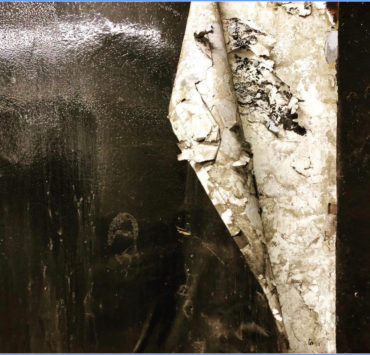
His Perfect Wife
She is tall and preferably white or, if an immigrant, not one who highlights the ills of America. She is able to endure physical labor of the sort required to perhaps chop wood, or haul sacks of earth or compost or branches, understands gardens and gardening, prefers decorative flowers to vegetables. She can upholster frayed seat covers. Or perhaps refurbish used furniture. She can strip and paint walls and fix things. Or, lacking those skills, has a deep appreciation for someone who possesses them.
She likes to run. Perhaps she is into American sports. Can name the winning ad during the Superbowl. Drinks beer.
She wears unfussy clothes and doesn’t put a lot of thought into her appearance, but is attractive. She is tall and therefore has never had the need to put on heels and has made of this a virtue. She is given to looking askance at those who do, but only privately. It would not occur to her to be overtly cruel. She is gracious and her superiorities remain masked. She is earthy and has short hair. Or, if not, a haircut that stays out of the way. She is interested in weather patterns. She has a chest to write home about.
She likes to read, widely, and almost always only fiction. Together they disavow the inscrutability of poetry. The books between them accumulate, but only in their minds, not in their houses, and they discuss the ideas found in those books, the plant hardiness zone in the places where they build, renovate, and abandon homes, and the behavior of seasonal flora, on their walks. These conversations are intellectually pleasing, and they return home feeling freshly anointed by the intelligence and wit of the other.
Since he is, himself, a plant that thrives under careful circumstances, she is circumspect in how she expresses her love for him. She is at ease with distance, quiet, solitary pursuits, and steers clear of outbursts of any sort— about the weather, about the traffic, about politics—and under the careful light of her ambient unoppressive warmth he flourishes both at home and in the world. He embraces necessary and fulfilling work, so-far-and-no-further friendships, occasional forays into their peaceful community, and the raising of independent children. He is considered by all to be blessed and, in his good fortune, female strangers are comfortable telling him how lucky he is in his choice of life partner. This is also true for his perfect wife who is often regarded, by female friends and newly met acquaintances alike, as being fortunate in her choice of life-partner.
While other men admire him greatly for having her as a wife, she is not the kind of woman those men would wish were married to them. Other men never tell either of them that they are fortunate in their choices because she does not share that kind of emotional intimacy with anyone, and certainly not people of the opposite gender who round out her area of influence, and his circle of men all agree that if they were to say such a thing it would mean that they wanted to sleep with his wife and that is not an acceptable fantasy.
She never raises her voice. Fuck is not a word she would use if she’s yelling at her kids. Then again she wouldn’t be yelling at them so she wouldn’t need the word fuck. Fucking in general won’t be something she fancies. Actually, she has never fucked anybody in her life. She has only had sexual relations. This has not necessarily prevented them, as a couple, from enjoying regular and mutually satisfying expressions of physical intimacy.
She attends some, but not most of her children’s activities. She would never fight coaches and school principals, let alone the superintendent. Those people wouldn’t feel terrified when she walked into the room. People would respect her and like her, but never fear her, and this would be best for everyone, particularly The Extended Family.
She would be cognizant of what is going on in the world, but not feel she was in possession of the means to fix any ills except with regular checks to NPR, Amnesty International, the Red Cross, the ACLU, or, in a fit of real zeal, The Southern Poverty Law Center.
She would have the occasional dinner party and it contains a perfect meal that comes out of a cookbook or maybe Cooking Light, and she would be thought of as a gracious hostess. And though he misses the fire and spice lurking in every dish the imperfect wife cooks, he acknowledges that the polish and presentation of the soufflés and pies produced by his perfect wife are more universally craved by their friends (who only arrive when invited or with due and decent notice), and, indeed, countrymen, and his mind is eased.
She would love Thanksgiving and be a welcome addition to the family and it would be said of her, as it was once said of Ms. F___, “she is a fine addition to the D______ family.”
By the time she was fifty she’d wear twin-sets and sensible, but certainly well-made and fashionable, shoes. She would probably own clip-on earrings and these would never give her a headache. She’d have a solid job and a retirement plan. There would be no need to discuss money, but if the need arose to do so, it would be sensible.
They would be so content together, glad every day for the disasters they have avoided, the troubles they did not have to face—barring those ordinary ones of sickness and the passing away of relatives, the occasional errant child—and the great good fortune of having found such blissful stability, such solid gold good sense.
Instead he has had to live with her. But she wonders, now, thinking about him, whether perhaps this is not true. That what he wanted was her, with the luxury fixings of all the things the dream woman is; the way you might buy a car with add-ons. Maybe he had only always wanted a vibrant, interesting female but not one coveted by other men. Someone interested in the world, but from behind the safe distance of newspapers and the vantage of armchairs. An engaged parent, but not an impulsive one. A competent appreciator of him.
This one, the one he married, lives alone.
Under cover of darkness she writes an untitled poem for a man she won’t name. A poem that nobody will ever read.
UNTITLED
Everything said about him is true
The curse of terrible regret makes ardor arduous
Poor translator confused by the peregrine’s sorrow
he lives in his girded cage determined to outwit
love
Incapacitated to reach an inclement node clinging to another
season make it flush green again A confluence of lives
in concert play an unheard aria He lets the petals drop
he does not he does not he does not
*
Her Perfect Husband
Has dark brown hair (because she is very far from the country that crowns its babies with the blue-black lush with which she is familiar), and eyes that can reflect the twin depths she carries beneath eyebrows no beautician can convince her to tame. He is tall enough to accommodate her preference for high heels which he admires without fail, as he admires the curve of her calf and the lift of her toes, and these things compel her to dress with specific intention toward his specific tastes, which shift easily to wrap around the shape she makes in the world.
He is wider and broader than she is, a frame that distinguishes her, and a solidity that protects her and in this regard he is, her perfect husband, much like the man for whom she is an imperfect wife. On the other hand, her perfect husband notes and admires her particular brilliance and commits himself to encouraging her to build her own frame, become her own protection in the world. He is thereby rewarded with a wife whom other men want for themselves but know they do not deserve.
He reads to understand not what has been written down, but what he is unable to articulate. For this reason, he is intimate with the way a poem both marks and carries a page forward into the void of his ignorance; how it finds and fills different blank spaces within him, leaving him simultaneously full and newly empty. He is wounded and healed by the written word and because he is, himself, clothed and iterated by words, he leaves no distance between the book he holds and his heart. This fragility does not require mending on her part. Their apartment fills up with books and friends who read and write them. Mostly poets.
In another life he picked flowers along the path to her house. In this life he brings her flowers from the grocery store, the farmer’s market, and on occasion the florist, failing which he takes pictures of flowers for her to remind her that to him she is like a shrine at which he will place his offerings, faithful as any devotee at any temple in any country of the world.
He comes from a gregarious and messy family that is exceptionally clear about their affections, addictions, and ancestry which can be traced back to cultures that favor food, family, gatherings—the larger the better—laughter, and the occasional story of revenge. His family is regularly bruised, composed of big dreams and average means, none of which prevents them from exuding a warmth that insists that the keys to their homes are duplicated often for the purpose of sharing.
When faced with the choice between the prudence of saving and the chaos of travel, he chooses travel. He is willing to accompany her to the museums, churches, and ruins that move her, though he does not feel compelled to absorb these things with the same intensity. In this latter regard, too, he is, her perfect husband, much like the man for whom she is an imperfect wife.
He may or may not like sports, but he joins in any she asks him to play. He is uninhibited which has the effect of drawing out a different creature from the contours of her mind and hence, her body. He places his palms on her belly emptied of children as though it is his privilege to touch the filigreed vase. He describes her such that she will consider his language the precise definition of her vastness and her limits. And though her sister-in-law had once said that she lived in the wrong country for American men coveted breasts and faces while her countrymen loved hair and arses, and though she will convey this to him, he will tell her how the precise measurement of her shoulders, wrists, waist, hips, fingers, feet, and breasts please him. Because his words move so close to his actions, because his hands are never far from her, it is easy to believe him.
He notes the attention that other men pay to her and is alternately amused or jealous, and both are conditions that he can share with her. Being of equal passion, their arguments are as heated as their agreement in the aftermath.
He lives with her silences but not so long that she forgets the way back home to him. He is unafraid of her moods and tempers. He threatens to smash the drunken face of a man who throws a stray comment at their lust in passing, with the bottle he holds in his hand. He says I’m done with you and don’t leave me in the same conversation. He can drink too much and not drink at all. He can chain-smoke or quit altogether. He can sleep all day and stay out all night. He likes to spend his time only with her but also at a dance club or gatherings where only one of them is known or neither is, but where the food and wine and talk are good. This makes him not one man but many, a quality that suits a complex woman with a fairly insatiable appetite for change and devotion.
His photographs of her capture her in ways nobody has seen. In each she is lit from within. He finds her beautiful and tells her so.
He is careful to stay on the outside when they walk, usually in big cities or foreign ones, which makes her feel seen and watched over. He notices if she is cold or drunk, and offers his jacket or his care accordingly. His awareness of her is vital to her. He understands that if it falters, she will drift away.
Her perfect husband does not fix anything, haul lumber, demolish and rebuild houses, dismantle and reassemble various pieces of equipment from computer printers to cars. He does not run a marathon or climb a mountain or set up camp or drive a stick-shift on the winding roads of the Italian coast without denting the rental car. He does not predict the weather day after day, give her the roadmap for her journeys along the highways of America, or hang a painting. He does not juggle, play baseball, and tennis, or ski down the mountains of Aspen, Breckenridge, Loveland, Telluride, and Silverton or, to put it in numbers, down mountains ranging from 12,510 feet to 13,487 feet. He does not navigate a sailboat, build a campfire, or scale a ladder bearing an 11×7 foot triple-glazed, high solar-gain, low-E pane of glass to install in a second floor bedroom of his own design.
Her perfect husband does not pick up and hold fully-grown daughters above his head to throw them into deep waters around her island country, or to place angels on the tops of Christmas trees that scratch the many roofs that shelter them in America. They are not his to hold.
In these significant ways the perfection of her perfect husband is diminished until she remembers that both husbands are untrue things born of circumstance and yearning.
Under cover of darkness she writes a titled poem for the man she names. A poem that can do no harm. Or so she likes to believe, driving the unsheathed sword bought for dancing, the one beneath which she had learned to spin, deep into her own heart. She thinks of this as a necessary repair.
POEM FOR OTHER MEN
You, whose glance remains tangled in duplicity, entranced,
you do not love her.
You do not love her who have never seen her walk
naked virginal through the laid paths of a Carolina trail
or lain in the dunes of Truro with a small fire
duly permitted by the law confiding the entirety of a family’s history
which seemed then not a confession but a lifting of burdens
You do not love her who have never led bare feet
over the fanged heights skirting the far Northern edges of your country
nor ever used the lit end of sticks to show her what her was destined
not to witness: a nation’s celebration of war renamed for freedom
your childlike joy taking flight
beside a bear-threatened campsite
but only after drinking coffee she offers from the first-aid kit
packed to save her from America A brew pure and pith black
that goes down hard to tell you that she like the culture that raised her
will always take her time that what she brings is a necessary but bitter warmth,
what sweetness is required must come whole tasted
with a tongue licking the surface of her bowl-shaped palm
You do not love her who never saw the jewel at the back of the thrift store
did not pick her off her feet & carry her home dressed in pink
cotton and lace bought off the sale rack at the Salvation Army nor brave
the ridicule of your friends to say out loud to this brown-girl-in-the-ring
who never dressed as others did no not even then
I came to see you dance last night
You do not love her who have not watched her spin
in the arms of other men under the chandelier prisms
of a ballroom in years after and later still sat by the fire
house quiet as she danced for you losing zills from her fingers jeweled
scarf from her hips spun silver sword from her head
moving
to the sound of your breath and hers
You do not love her who have not held her leaning
into the punk stink of a gritty taxi already laboring to rent a car
at a city airport too young to know better nor watched her
in the hours to come terrified that the life
looking for light will be replacement
not gift
You do not love her who have not fed her the right thing when she wanted it
nor played the wrong music—James Brown—at the wrong time
felt in that luckless wake the force of her desperation
You do not love her who have not watched her run in socks through snow
nor combed each matted strand of hair unbound in adolescent
unknowing nor washed the skeined skin that prevents her escape
You do not love her who have not held an infant turning blue
who have not stood before her helpless and uttered these words: I cannot save her
who have not seen her turn to seek a power
beyond anything you could ever offer
who do not know what fragile joy returns
with the returned child
You do not love her who have neither seen nor denied
the acuminous sadness she carries its weight your weight
weightless and moving deep and further from you
who have not listened to statements of endings collected broken
chairs & table overturned nor felt relief that an ocean crashing
over the island of her heart could make her whole
You do not love her who have not picked from the floor the knife
shard of blue fragment of art gifted at marriage broken in the aftermath
of a fight begun over Bergman’s best intentions
You do not love her who have not fallen in love with her singing
voice the sway of her body & watched both singe and crumble nor
witnessing each determined renewal reached for the filigreed vase
You do not love her who have not known the depths of her friendships
slate springs before which she kneels to slake unquenchable thirsts
nor waited in patience for the end of her journeys for the faithful
heart and what comes with it jagged borders of spoken words flung
the soothe of lullabies sung to daughters each
according to taste and tolerance for love expressed
You do not love her who have not lain through the dark night in silence
who have not felt the vastness of the spilled space left uncrossed between
who have not in the deepest sleep still unfurled your fingers
and taken the hand placed in yours You do not love her who did not know all this
all this and this too You do not love her who do not know
This is the measure of love.
*
Their perfect spouses only love the woman and man they see and know, whole and beautiful and theirs. She does not get to be his wife. He does not get to be her husband. Their perfect husband and wife marry other people and become those people’s imperfect husband and wife and in this way all four, cut from the same cloth, are subject to the same heartache. In separate parts of the world, or maybe the country, or even the same town, that cloth tares and they weep without witness.
*
As pointed out by Atwood, whether it is A, B, C, D, E, or F, all love stories end the same way. In some traditions this is seen as relief.
Image Credits: spDuchamp
The Ferrante Project: A collective of 16 women writers of color experimenting with freedom, anti-fame, and anonymity. Contributors include: Cathy Linh Che, Angie Cruz, Natalie Díaz, Ru Freeman, Sarah Gambito Cristina García, Jamey Hatley, Dawn Lundy Martin, Ayana Mathis, Vi khi nao, Aimee Nezhukumatathil, Deborah Paredez, Khadijah Queen, Emily Raboteau, Paisley Rekdal, and Lyrae Van Clief- Stefanon.







